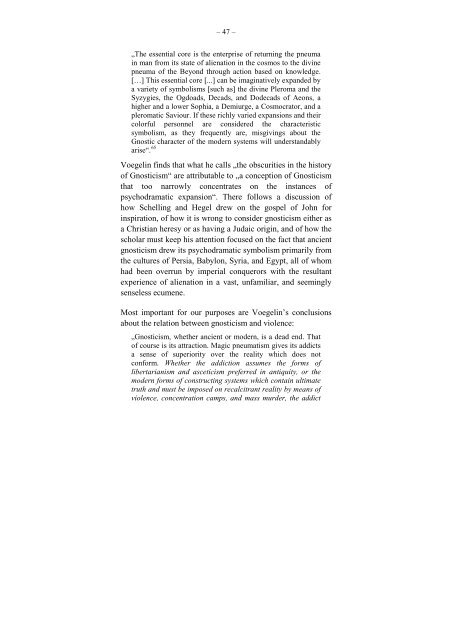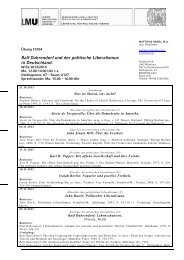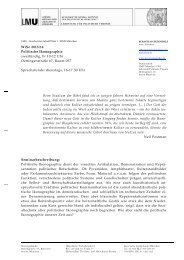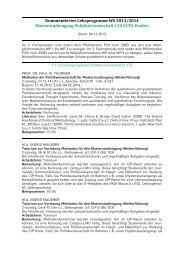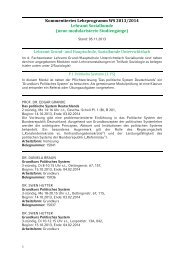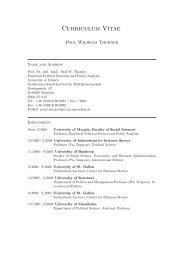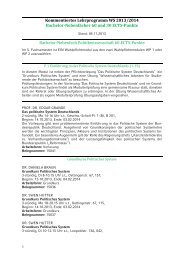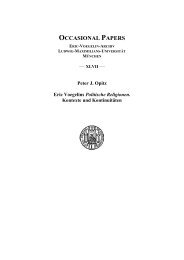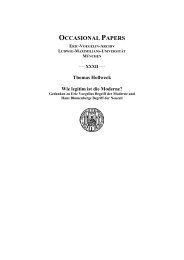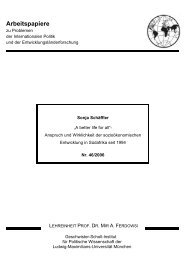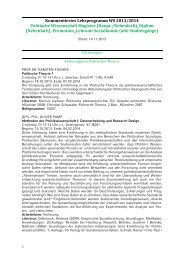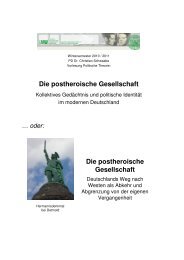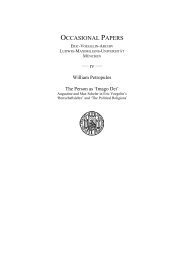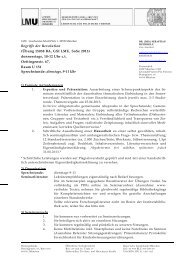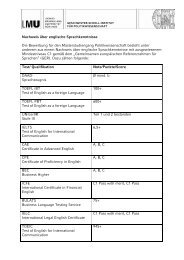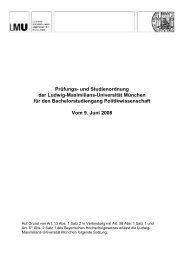Eric Voegelin.pdf - Geschwister-Scholl-Institut für Politikwissenschaft
Eric Voegelin.pdf - Geschwister-Scholl-Institut für Politikwissenschaft
Eric Voegelin.pdf - Geschwister-Scholl-Institut für Politikwissenschaft
Create successful ePaper yourself
Turn your PDF publications into a flip-book with our unique Google optimized e-Paper software.
– 47 –<br />
„The essential core is the enterprise of returning the pneuma<br />
in man from its state of alienation in the cosmos to the divine<br />
pneuma of the Beyond through action based on knowledge.<br />
[…] This essential core [...] can be imaginatively expanded by<br />
a variety of symbolisms [such as] the divine Pleroma and the<br />
Syzygies, the Ogdoads, Decads, and Dodecads of Aeons, a<br />
higher and a lower Sophia, a Demiurge, a Cosmocrator, and a<br />
pleromatic Saviour. If these richly varied expansions and their<br />
colorful personnel are considered the characteristic<br />
symbolism, as they frequently are, misgivings about the<br />
Gnostic character of the modern systems will understandably<br />
arise“. 65<br />
<strong>Voegelin</strong> finds that what he calls „the obscurities in the history<br />
of Gnosticism“ are attributable to „a conception of Gnosticism<br />
that too narrowly concentrates on the instances of<br />
psychodramatic expansion“. There follows a discussion of<br />
how Schelling and Hegel drew on the gospel of John for<br />
inspiration, of how it is wrong to consider gnosticism either as<br />
a Christian heresy or as having a Judaic origin, and of how the<br />
scholar must keep his attention focused on the fact that ancient<br />
gnosticism drew its psychodramatic symbolism primarily from<br />
the cultures of Persia, Babylon, Syria, and Egypt, all of whom<br />
had been overrun by imperial conquerors with the resultant<br />
experience of alienation in a vast, unfamiliar, and seemingly<br />
senseless ecumene.<br />
Most important for our purposes are <strong>Voegelin</strong>’s conclusions<br />
about the relation between gnosticism and violence:<br />
„Gnosticism, whether ancient or modern, is a dead end. That<br />
of course is its attraction. Magic pneumatism gives its addicts<br />
a sense of superiority over the reality which does not<br />
conform. Whether the addiction assumes the forms of<br />
libertarianism and asceticism preferred in antiquity, or the<br />
modern forms of constructing systems which contain ultimate<br />
truth and must be imposed on recalcitrant reality by means of<br />
violence, concentration camps, and mass murder, the addict


